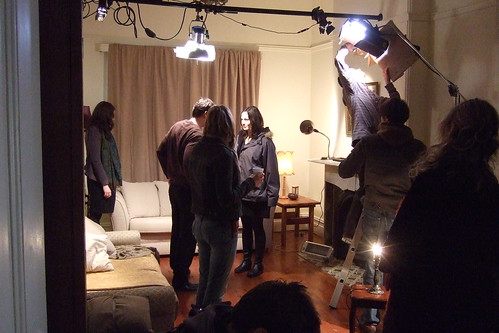I don't know much about the science of clean coal, but I've been rather skeptical of all the clean coal skeptics. It tends to be framed as an enormous waste of investment with no returns and all. It's possibility of "clean" coal is supposedly a total myth. But I tend to doubt that kind of black and white analysis. I don't think the government would put $500 million into something with no prospects at all. I'm a little cynical about the government, but not that cynical yet. Still, I have only skeptical friends but I wasn't fully convinced by them.
But I recently read an article about clean coal subsidies from government, and specifically government insurance of long-term storage facilities. So companies would have to insure their storage against accidental release for a decade or so, but if anything went wrong after that the government would step in and pay for it. Or at least the government would cover the costs of insuring against accidents. The argument for this subsidy is that the industry won't be viable with out government support. And we're not just talking about short-term viability - but viability over 50 years. Which is surely reason to be suspicious. The industry apparently cannot be profitable if it has to cover all the costs of long-term storage.
The Greens were asking in parliament why the government should subsidise the industry. The government responded that we need to have clean coal, and the subsidy is the only way we will get it. That is rather strange. I suspect the solar power industry would flourish, completely absent of any subsidies, if the government stopped covering the arses of coal power plants by allow them to pollute for free. They're talking about solar power that will be cost-competitive with coal power in 10 years and that's with a slow carbon tax phase in.
MP Dick Adams claims "we need to find ways to assist the industry to begin." I don't think that insuring a company forever, against any cost shortcuts and mistakes it makes now is really a reasonable way of doing that.
Another interesting comment from Dick Adams was that since a lot of the clean coal operators would cease to exist, the government would assume long-term liability by default. If he really thinks the free market works so poorly, that a company can't assume long-term responsibility for it's infrastructure, then he probably needs to reflect a little hard on why he's supporting private industry here to begin with. I'm inclined to agree that free markets are only functional in the short term, but I'd suggest that the government run or regulate anything that needs a longer-term perspective. Just absorbing the long-term costs while allowing the immediate benefits to accrue to the private sector strikes me as rather stupid.
Once again, I'm surprised to discover that the Greens have given the economics of an issue a lot more thought than the other guy.


